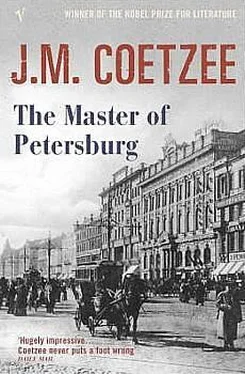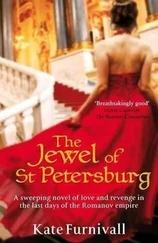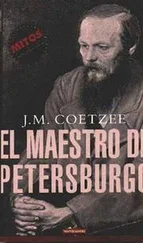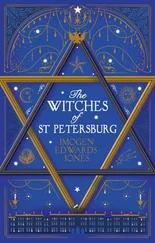An image comes to him that for the past month he has flinched from: Pavel, naked and broken and bloody, in the morgue; the seed in his body dead too, or dying.
Nothing is private any more. As unblinkingly as he can he gazes upon the body-parts without which there can be no fatherhood. And his mind goes again to the museum in Berlin, to the goddess-fiend drawing out the seed from the corpse, saving it.
Thus at last the time arrives and the hand that holds the pen begins to move. But the words it forms are not words of salvation. Instead they tell of flies, or of a single black fly, buzzing against a closed windowpane. High summer in Petersburg, hot and clammy; from the street below, noise, music. In the room a child with brown eyes and straight fair hair lying naked beside a man, her slim feet barely reaching to his ankles, her face pressed against the curve of his shoulder, where she snuggles and roots like a baby.
Who is the man? The body is as perfectly formed as a god's. But it gives off such marmoreal coldness that it is impossible a child in its grasp could not be chilled to the bone. As for the face, the face will not be seen.
He sits with the pen in his hand, holding himself back from a descent into representations that have no place in the world, on the point of toppling, enclosed within a moment in which all creation lies open at his feet, the moment before he loosens his grip and begins to fall.
It is a moment of which he is becoming a connoisseur, a voluptuary. For which he will be damned.
Restlessly he gets up. From the suitcase he takes Pavel's diary and turns to the first empty page, the page that the child did not write on because by then he was dead. On this page he begins, a second time, to write.
In his writing he is in the same room, sitting at the table much as he is sitting now. But the room is Pavel's and Pavel's alone. And he is not himself any longer, not a man in the forty-ninth year of his life. Instead he is young again, with all the arrogant strength of youth. He is wearing a white suit, perfectly tailored. He is, to a degree, Pavel Isaev, though Pavel Isaev is not the name he is going to give himself.
In the blood of this young man, this version of Pavel, is a sense of triumph. He has passed through the gates of death and returned; nothing can touch him any more. He is not a god but he is no longer human either. He is, in some sense, beyond the human, beyond man. There is nothing he is not capable of.
Through this young man the building, with its stale-smelling corridors and blind corners, begins to write itself, this building in Petersburg, in Russia.
He heads the page, in neat capitals, the apartment, and writes:
He sleeps late, rarely rising before noon, when the apartment has grown so hot that the bedsheets are soaked with his sweat. Then he stumbles to the little washroom on the landing and splashes water over his face and brushes his teeth with his finger and stumbles back to the apartment. There, unshaven, straggle-haired, he eats the breakfast his landlady has set out for him (the butter by now melted, gnats floating in the milk); and then shaves and puts on yesterday's underwear, yesterday's shirt, and the white suit (the trouser-creases sharp as a knife from being pressed under the mattress all night), and wets his hair and slicks it down; and then, having prepared for the day, loses interest, loses motive power: sits down again at the table still cluttered with the breakfast things and falls into a reverie, or sprawls about, picking his nails with a knife, waiting for something to happen, for the child to come home from school.
Or else wanders around the apartment opening drawers, fingering things.
He comes upon a locket with pictures of his landlady and her dead husband. He spits on the glass and shines it with his handkerchief. Brightly the couple stare at each other across their tiny prison.
He buries his face in her underclothes, smelling faintly of lavender.
He is enrolled as a student at the university but he attends no lectures. He joins a kruzhok, a circle whose members experiment with free love. One afternoon he brings a girl back to his room. It occurs to him that he ought to lock the door, but he does not. He and the girl make love; they fall asleep.
A noise wakes him. He knows they are being watched.
He touches the girl and she is awake. The two of them are naked, beautiful, in the pride of their youth. They make love a second time.
Throughout, he is aware of the door open a crack, and the child watching. His pleasure is acute; it communicates itself to the girl; never before have they experienced such dark sweetness.
When he takes the girl home afterwards, he leaves the bed unmade so that the child, exploring, can familiarize herself with the smells of love.
Every Wednesday afternoon from then on, for the rest of the summer, he brings the girl to his room, always the same girl. Each time, when they depart, the apartment seems to be empty; each time, he knows, the child has crept in, has watched or listened, is now hiding somewhere.
'Do mat again,' the girl will whisper.
'Do what?'
'That!' she whispers, flushed with desire.
'First say the words,' he says, and makes her say them. 'Louder,' he says. Saying the words excites the girl unbearably.
He remembers Svidrigailov: 'Women like to be humiliated.'
He thinks of all of this as creating a taste in the child, as one creates a taste for unnatural foods, oysters or sweetbreads.
He asks himself why he does it. The answer he gives himself is: History is coming to an end; the old account-books will soon be thrown in the fire; in this dead time between old and new, all things are permitted. He does not believe his answer particularly, does not disbelieve it. It serves.
Or he says to himself: It is the fault of the Petersburg summer – these long, hot, stuffy afternoons with flies buzzing against the windowpanes, these evenings thick with the hum of mosquitoes. Let me last through the summer, and through the winter too; then when spring comes I will go away to Switzerland, to the mountains, and become a different person.
He takes his meals with his landlady and her daughter. One Wednesday evening, pretending high spirits, he leans across the table and ruffles the child's hair. She draws away. He realizes he has not washed his hands, and she has picked up the after-smell of lovemaking. Colouring, covered in confusion, she bends over her plate, will not meet his eye.
He writes all of this in a clear, careful script, crossing out not a word. In the act of writing he experiences, today, an exceptional sensual pleasure – in the feel of the pen, snug in the crook of his thumb, but even more in the feel of his hand being tugged back lightly from its course across the page by the strict, unvarying shape of the letters, the discipline of the alphabet.
Anya, Anna Snitkina, was his secretary before she was his wife. He hired her to bring his manuscripts into order, then married her. A fairy-girl of a kind, called in to spin the tangle of his writing into a single golden thread. If he writes so clearly today, it is because he is no longer writing for her eyes. He is writing for himself. He is writing for eternity. He is writing for the dead.
Yet at the same time that he sits here so calmly, he is a man caught in a whirlwind. Torrents of paper, fragments of an old life torn loose by the roar of the upward spiral, fly all about him. High above the earth he is borne, buffeted by currents, before the grip of the wind slackens and for a moment, before he starts to fall, he is allowed utter stillness and clarity, the world opening below him like a map of itself.
Letters from the whirlwind. Scattered leaves, which he gathers up; a scattered body, which he reassembles.
Читать дальше












